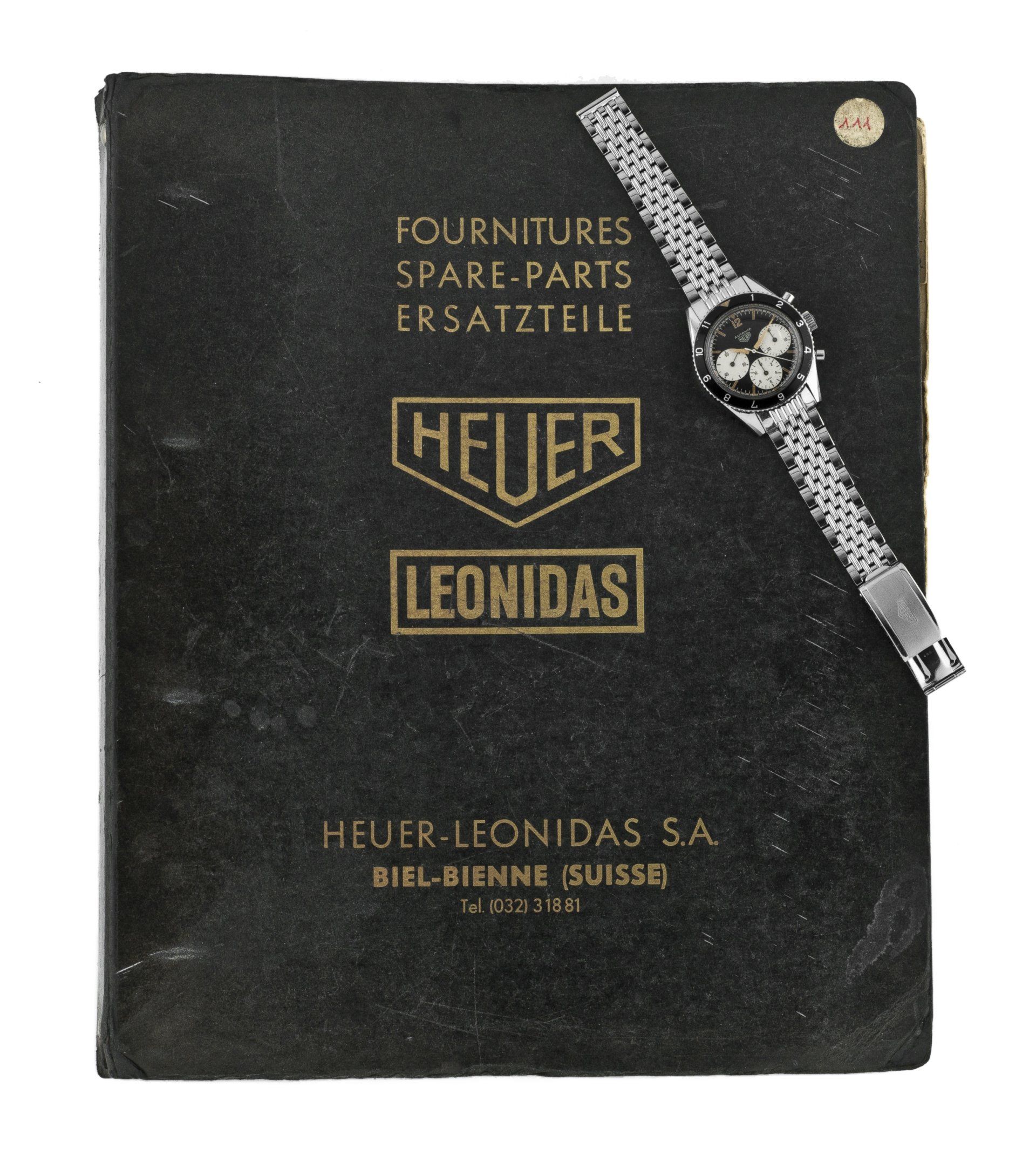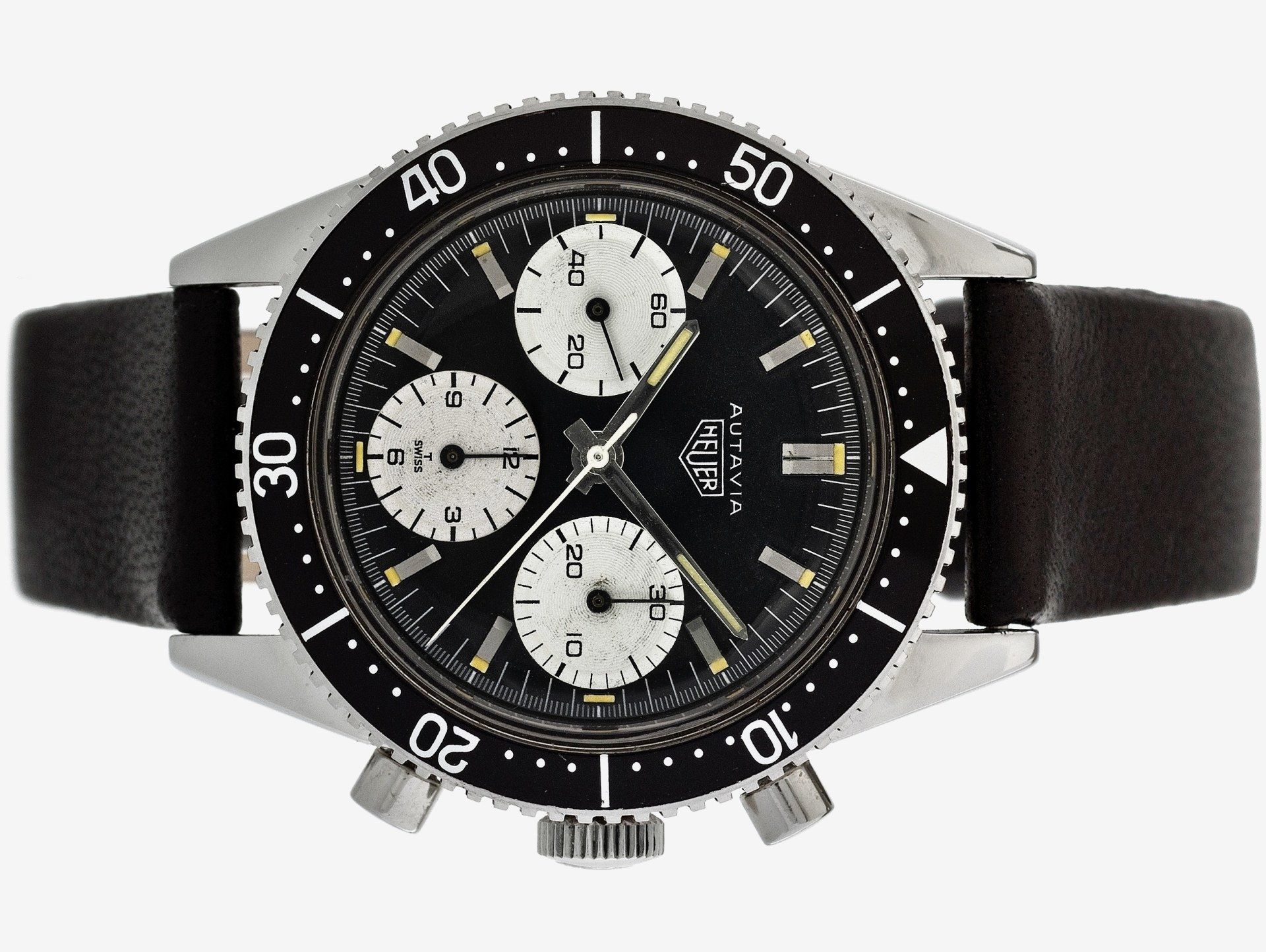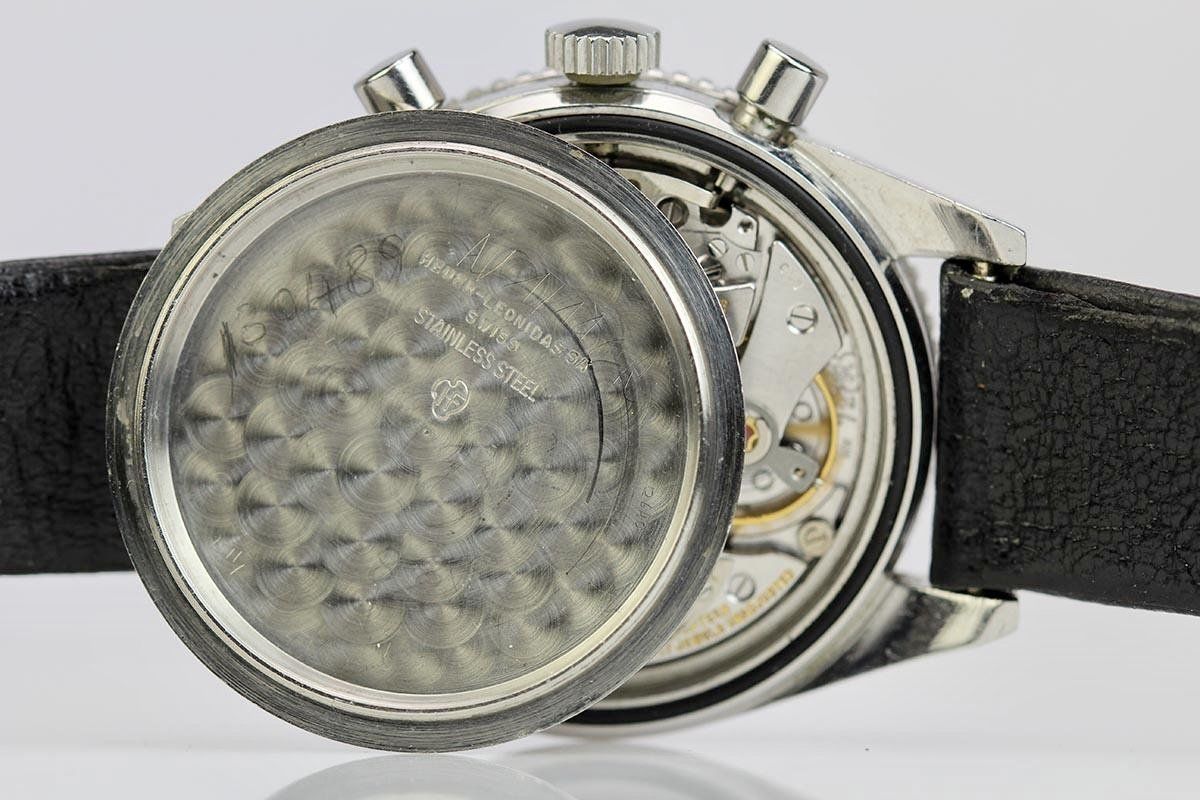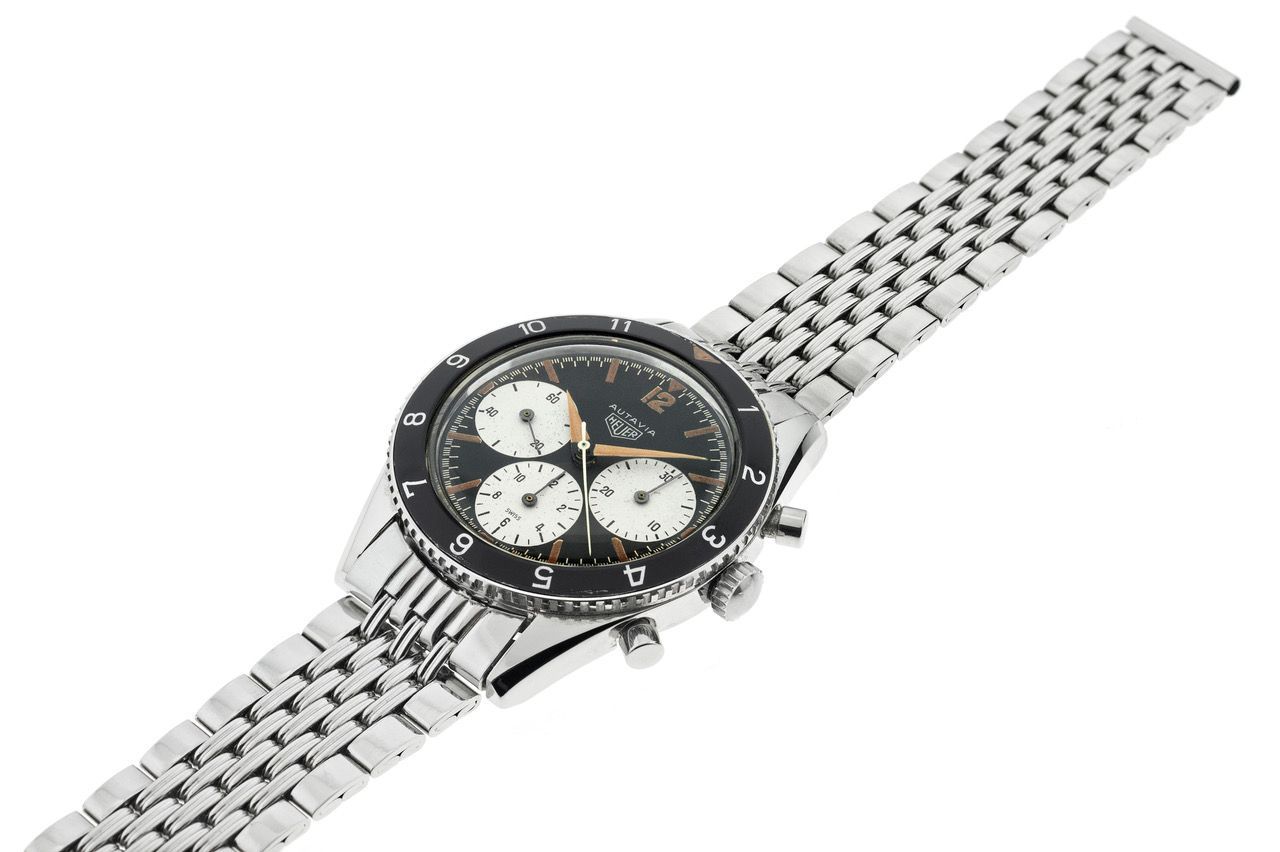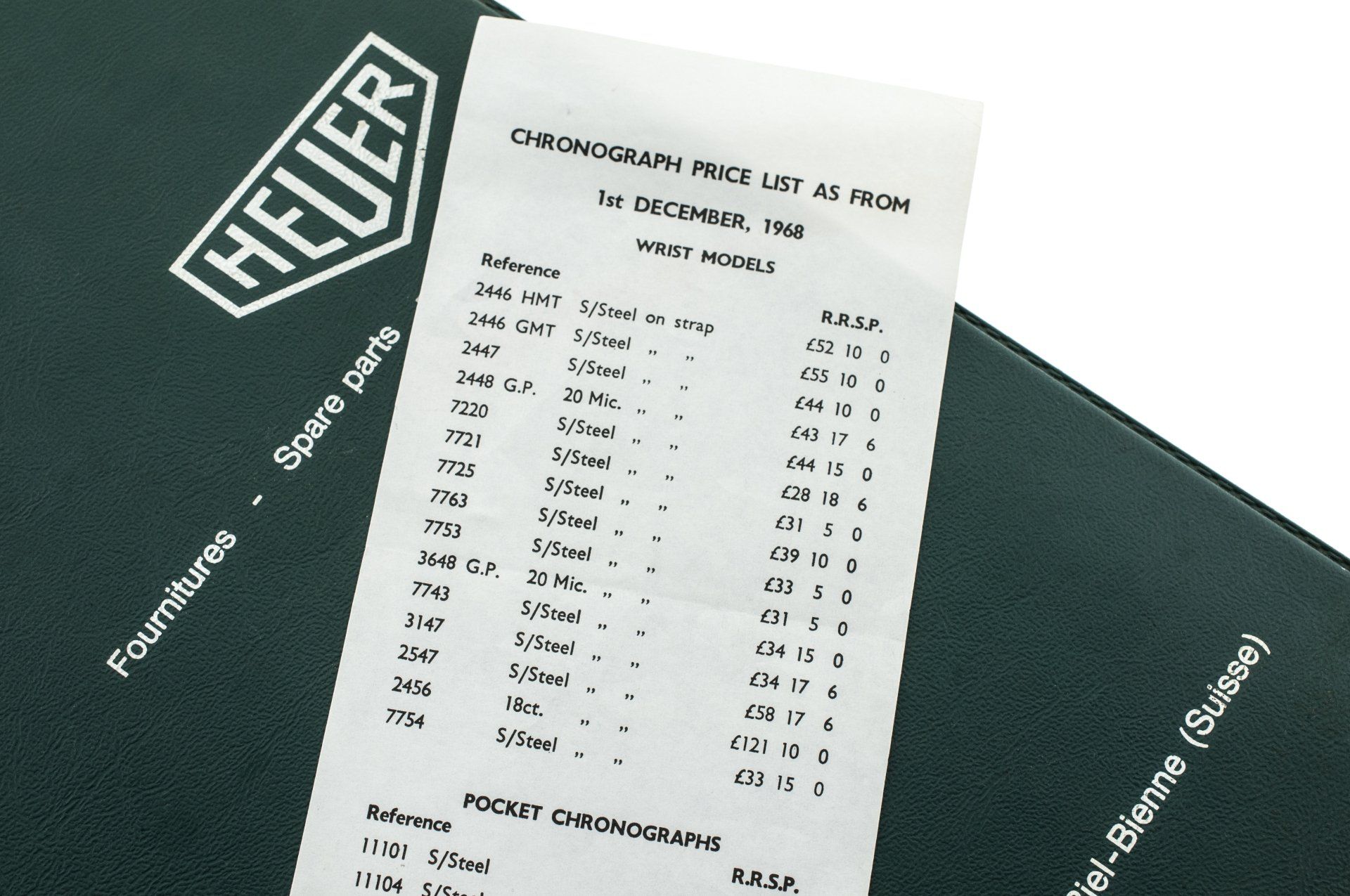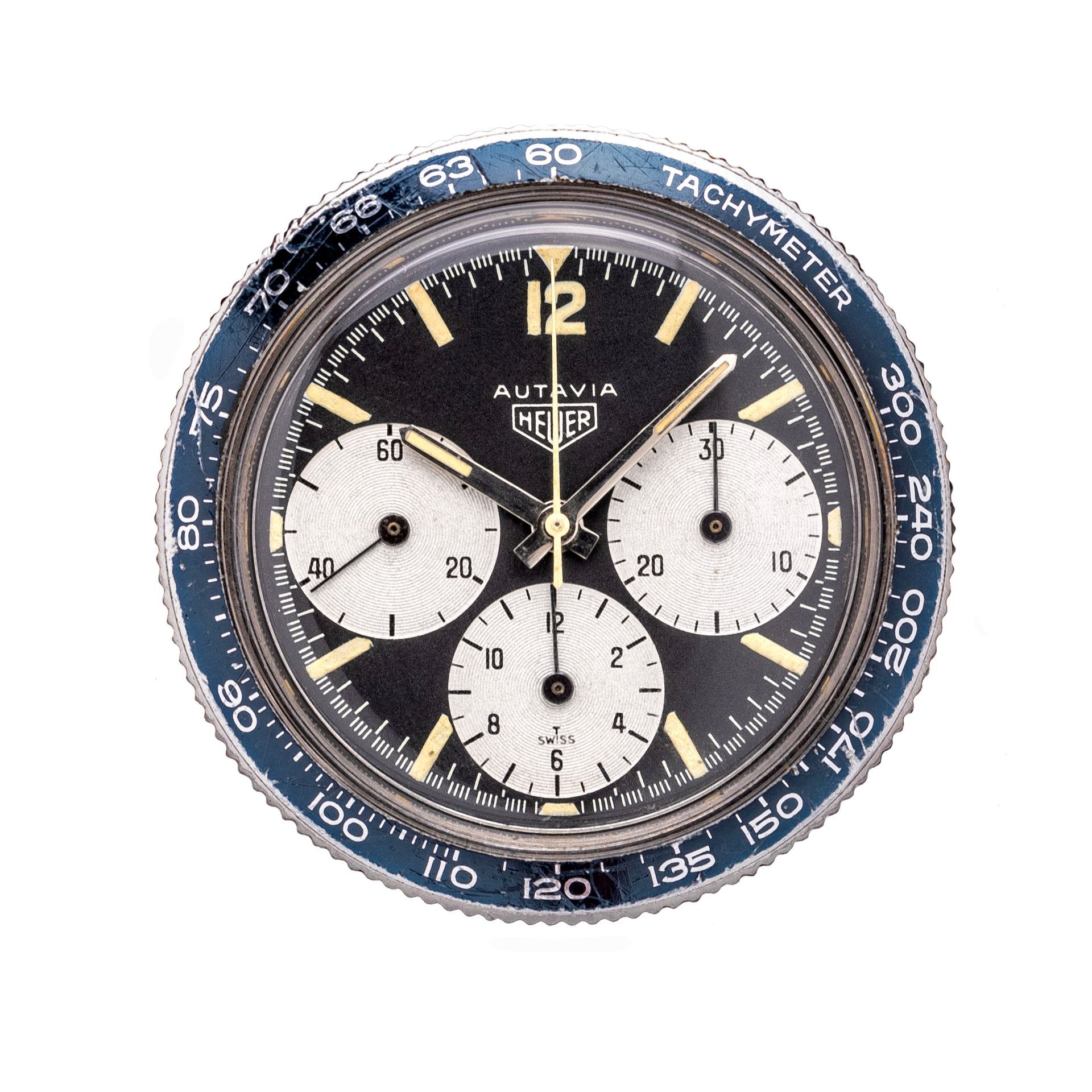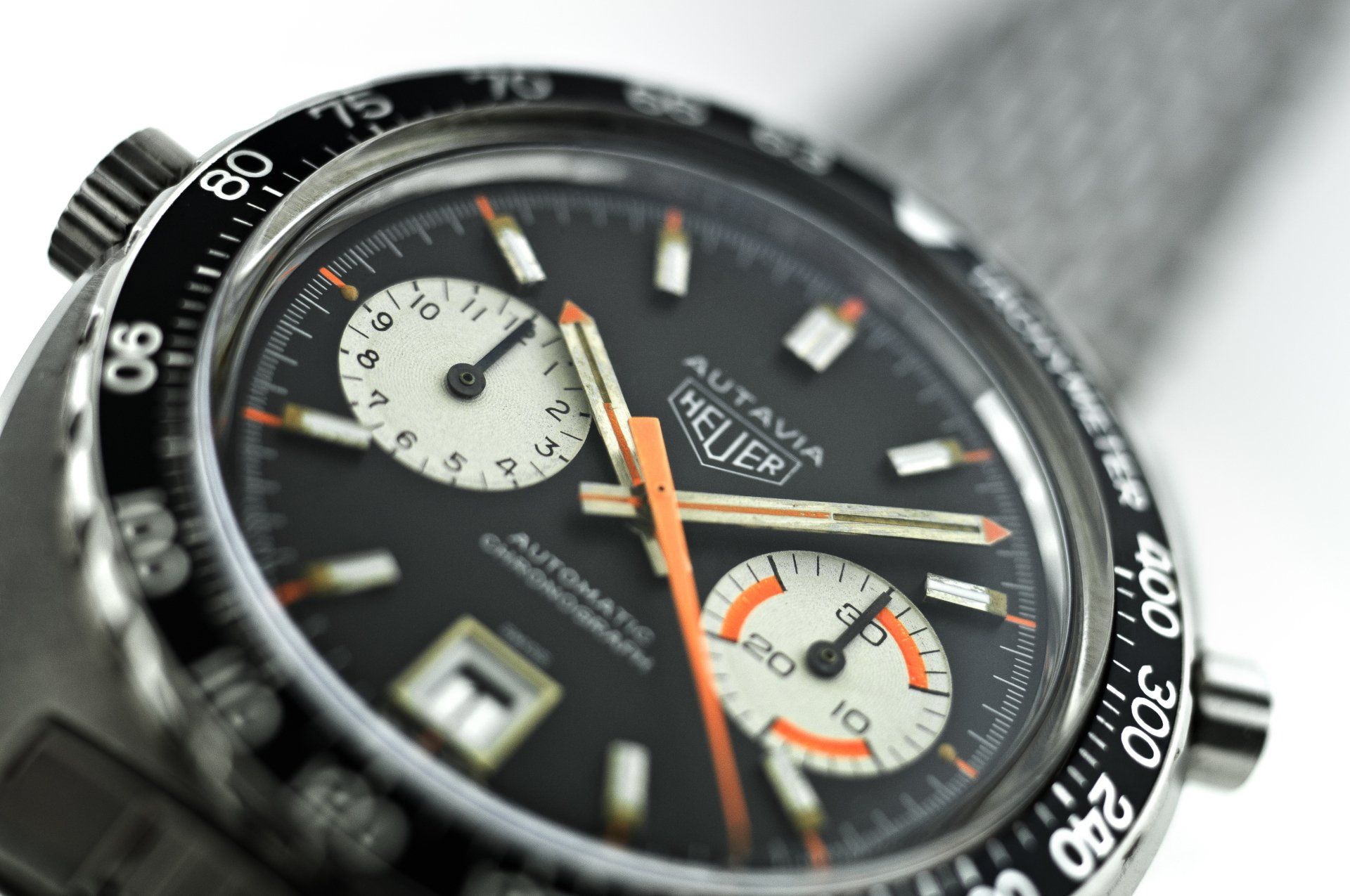The Heuer Autavia 2446 Transitional
What's a Rindt, but isn't a Rindt, but is sometimes called a Rindt? The 2446 Transitional Autavia of course!
What marks the Transitional Autavia 2446 out from the earlier 2nd execution and the subsequent 3rd execution "Rindt"? Well, the Transitional features a similarly wide bezel to the 2nd execution but now without the lume triangle at 12 o'clock, which would later transition into the thin bezel on the later 2446 Rindt. The case is unusual and unique to this model as it is the only screw back case Autavia to feature non bevelled lugs. I have seen some examples where the watch polisher who was unaware of this fact (or perhaps thought the bevel had worn away) tried to polish a bevel into the case to match the standard Rindt! The repercussions of that are serious, both aesthetically and financially! The hands on this model transition for the first time into the thin plain steel versions which were used for the remainder of the Autavia screw back series and the dial is exactly the same dial as used in the later 3rd execution Rindt.
See the table below for a simple breakdown of the case/bezel/serial allocation differences of the std screw back case 2446 Autavia series.
2446 1st Mk1 hands Bevelled lugs Wide/lume bezel < 150 serials
2446 1st Mk2 hands Bevelled lugs Wide/lume bezel < 800 serials
2446 2nd
Bevelled lugs Wide/lume bezel < 1000 serials
2446 Transitional Straight lugs Wide bezel < 600 serials
2446 3rd Rindt
Bevelled lugs Thin bezel < 3000 serials
2446 4th Bevelled lugs Thin bezel < 200 serials
The life cycle of this transitional watch was very short, even by Heuer standards! The watch was only in the market in 1965, by 1966 the 3rd execution arrived. Serial allocation for the 2446 Transitional reference is very narrow and they all fall between 8299x and 834xx, meaning serial allocation was maximum 500 (but undoubtably fewer were produced). Compare this to the standard Rindt where the maximum serial allocation is circa 2500-3000. Apart from the specific details mentioned above, collectors should note that the inside of the case back was unique to the Transitional variant, showing a Heuer Leonidas engraving style and inside back case finish that does not appear on the later Rindt version. Also, the crown would be unsigned like the 2nd execution and the very first of the 3rd execution Rindt.
The fat lugs and wide bezel gives the Transitional 2446 an appreciably different look when compared to the later Rindt, making the watch visually wear slightly larger even though the bezel is still 39mm wide. Some even say it is better looking watch than the standard 2446 Rindt, although if that is the case (and it is very much personal preference) it relies on the condition of the case and bezel being good, most are not.
Values? Well, this is another one of those vintage Heuers that is rarely found in mint condition. To date I have noted fewer than 40 Transitional 2446 in total and have seen only a handful in mint condition. Interestingly, values are similar to the 3rd execution Rindt, currently perhaps only 10% higher despite the fact it is five or six times rarer than the much more common Rindt. They range in value from approximately £7500 to circa £20000+ for the very best examples, making this watch relatively good value, especially considering its comparative rarity against the standard Rindt.
To read more about the vintage Heuer Autavia chronographs click on the link below to preview the Heuer Autavia 1962-85 book, which is filled with beautiful photographs and important collector info.
Note: Please do not reproduce these images without permission.
Photo credit for case back: Matt Bain
